Filter by
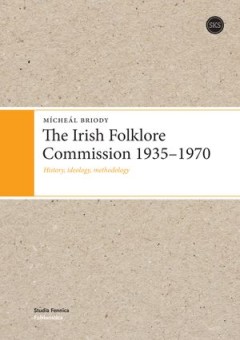
The Irish Folklore Commission 1935-1970: History, Ideology, Methodology
Between 1935 and 1970 the Irish Folklore Commission (Coimisiún Béaloideasa Éireann), under-funded and at great personal cost to its staff, assembled one of the world’s largest folklore collections. This study draws on the extensive government files on the Commission in the National Archives of Ireland and on a wide variety of other primary and secondary sources, in order to recount and ass…
- Edition
- -
- ISBN/ISSN
- 9789517469470
- Collation
- -
- Series Title
- -
- Call Number
- 909.82 BRI i
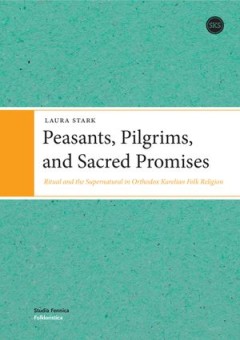
Peasants, Pilgrims, and Sacred Promises
Lying on the border between eastern and western Christendom, Orthodox Karelia preserved its unique religious culture into the 19th and 20th centuries, when it was described and recorded by Finnish and Karelian folklore collectors. This colorful array of ritulas and beliefs involving nature spirits, saints, the dead, and pilgrimage to monasteries represented a unigue fusion of official Church ri…
- Edition
- -
- ISBN/ISSN
- 9789517463669
- Collation
- -
- Series Title
- -
- Call Number
- 306.6 STA p
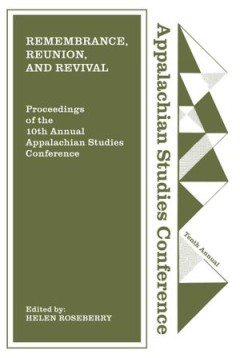
Remembrance, Reunion and Revival
The proceedings from the 1987 Appalachian Studies Conference held at East Tennessee State University includes contributions by Sandra L. Ballard; Richard Blaustein; Ricky Cox; Alan J. DeYoung; Howard Dorgan; Karen Tice and Albie Pabon; Bennie Lee Sinclair; Amy Tipton Gray; Marie Tedesco; Mark F. Sohn; Marc Sherrod; Curtis Wood and Joan Greene; and Paul E. Lovingood and Robert E. Reiman.
- Edition
- -
- ISBN/ISSN
- 9781469636702
- Collation
- -
- Series Title
- -
- Call Number
- 306.4 ROS r
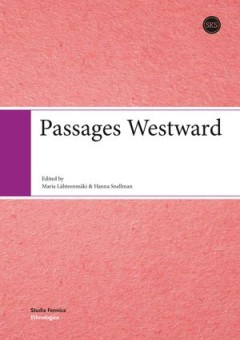
Passages Westward
The West has always been a resource for the Finns. Scholars, artists and other professionals have sought contacts from Europe throughout the centuries. The Finnish experience in Western Europe and the New World is a story of migrant laborers, expatriates and specialists working abroad. But you don’t have to be born in Finland to be a Finn. The experiences of second-generation Finnish immigran…
- Edition
- -
- ISBN/ISSN
- 9789518580679
- Collation
- -
- Series Title
- -
- Call Number
- 572.9 SNE p
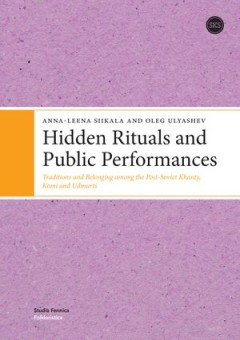
Hidden Rituals and Public Performances: Traditions and Belonging Among The Po…
Why are Khanty shamans still active? What are the folklore collectives of Komi? Why are the rituals of Udmurts performed at cultural festivals? In their insightful ethnographic study Anna-Leena Siikala and Oleg Ulyashev attempt to answer such questions by analysing the recreation of religious traditions, myths, and songs in public and private performances. Their work is based on long term field…
- Edition
- -
- ISBN/ISSN
- 9789522223074
- Collation
- -
- Series Title
- -
- Call Number
- 301 ULY h
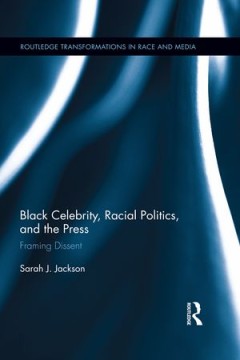
Black Celebrity, Racial Politics, and the Press : Framing Dissent
Shifting understandings and ongoing conversations about race, celebrity, and protest in the twenty-first century call for a closer examination of the evolution of dissent by black celebrities and their reception in the public sphere. This book focuses on the way the mainstream and black press have covered cases of controversial political dissent by African American celebrities from Paul Robeson…
- Edition
- -
- ISBN/ISSN
- 978-1-315-88704-3
- Collation
- -
- Series Title
- Routledge transformations in race and media ; 2
- Call Number
- 323.119 607 3 JAC b
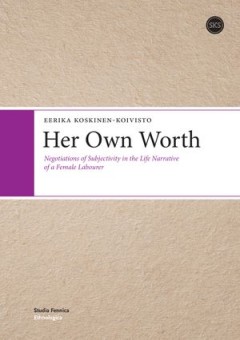
Her Own Worth: Negotiations of Subjectivity in The Life Narrative of a Female…
In this study, I examine the life narrative of a female factory labourer, Elsa Koskinen (née Kiikkala, born in 1927). I analyze her account of her experiences related to work, class and gender because I seek to gain a better understanding of how changes in these aspects of life influenced the ways in which she saw her own worth at the time of the interviews and how she constructed her subjecti…
- Edition
- -
- ISBN/ISSN
- 9789522226099
- Collation
- -
- Series Title
- -
- Call Number
- 301 KOS h
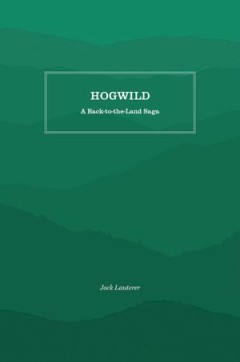
Hogwild: A Back-to-the-Land Saga
In Hogwild: A Back-to-the-Land Saga, readers learn that the term “Hogwild” was an outrageous ideology—that a loosely organized confederation of like-minded individuals could carve out a simple country lifestyle from an enclave of mountain land, raise their own crops, bring up their children in peace and serenity, and build their own free-spirited houses with logs timbered from the local f…
- Edition
- -
- ISBN/ISSN
- 9781469638508
- Collation
- -
- Series Title
- -
- Call Number
- 300 LAU h
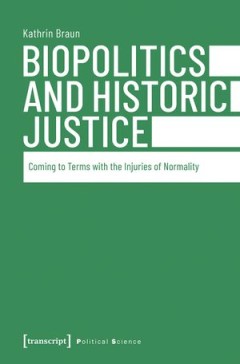
Biopolitics and Historic Justice : Coming to Terms with the Injuries of Norma…
Human rights violations linked to norms of health, fitness, and social usefulness have long been overlooked by Historic Justice Studies. Kathrin Braun introduces the concept of »injuries of normality« to capture the specifics of this type of human rights violation and the respective struggles for historic justice. She examines the processes of Vergangenheitsbewältigung in the context of coer…
- Edition
- -
- ISBN/ISSN
- 9783732845507
- Collation
- -
- Series Title
- -
- Call Number
- 361.614 BRA b
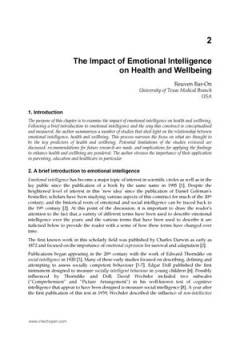
The Impact of Emotional Intelligence on Health and Wellbeing
The Impact of Emotional Intelligence on Health and Wellbeing
- Edition
- -
- ISBN/ISSN
- 9789533078380
- Collation
- -
- Series Title
- -
- Call Number
- -
 Computer Science, Information & General Works
Computer Science, Information & General Works  Philosophy & Psychology
Philosophy & Psychology  Religion
Religion  Social Sciences
Social Sciences  Language
Language  Pure Science
Pure Science  Applied Sciences
Applied Sciences  Art & Recreation
Art & Recreation  Literature
Literature  History & Geography
History & Geography